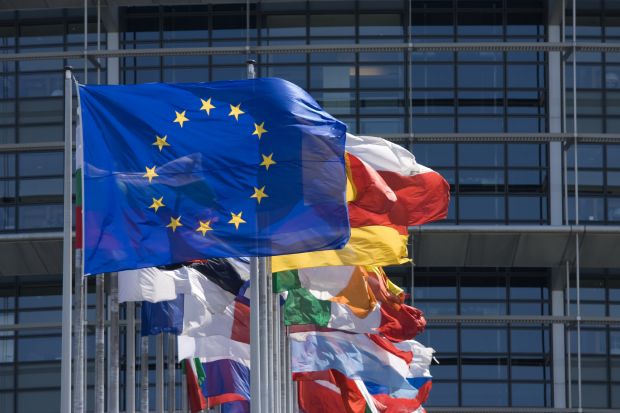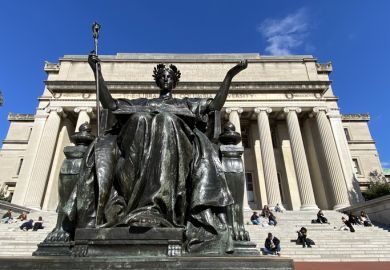Reducing the case for staying in the European Union to a simple “cost-benefits analysis” would be a mistake for universities seeking to influence the referendum debate, a leading vice-chancellor has warned.
Anton Muscatelli, principal of the University of Glasgow, said that it was vital for universities to appeal to the “core values” of their staff and students when arguing that the UK should remain in the EU, rather than solely using economic arguments.
Universities are set to hold dozens of debates on campus over the coming weeks ahead of the historic 23 June poll which will decide whether the UK will exit the EU.
Professor Muscatelli told a joint Higher Education Policy Institute and Higher Education Academy event at the House of Commons on 23 February that universities keen to champion EU membership “should not underplay” the importance of the EU in enabling the free movement of academics and students.
“The lifeblood of universities is the mobility of scholars and students,” said Professor Muscatelli.
That was even true now, but also in medieval times when the University of Glasgow was founded, he added.
“Mobility was part of the university from the very beginning, so anything that will erect a barrier to that will create a negative reaction [among staff],” said Professor Muscatelli, who was one of 103 university leaders to sign a recent open letter in support of the UK’s EU membership.
Arguments for leaving the EU had not proved popular on campus as they constituted a “fundamental attack of our values”, particularly the desire to restrict freedom of labour, he added.
However, despite emphasising the need to move beyond economic arguments, the benefits to UK universities of staying in the EU were “stark”, Professor Muscatelli said.
At Glasgow, about 5 per cent of students were non-British EU citizens, who were generally “stellar performers” in their classes, said Professor Muscatelli, an Italian-born economist who moved to the UK in his teens.
Some 20 per cent of academic staff in Russell Group universities came from the EU, while many brought with them European Research Council funding, he added.
About half of all ERC grant holders in the UK were non-UK EU citizens, he added.
Switzerland’s decision to restrict immigration from within the EU, its subsequent exclusion from the Horizon 2020 research programme and its later inclusion as an “associate member”, showed how damaging Brexit could be to the country’s research base, he added.
Timothy Garton Ash, professor of European studies at the University of Oxford, said that it was vital for universities to engage with students on the issue of Brexit as a recent Hepi poll showed 30 per cent were either undecided or likely to vote to leave.
“Most students have not begun to think about this,” said Professor Garton Ash.
Universities should seek to “get them to think about it, talk about it and campaign about it” as “middle aged men in suits” such as himself were less likely to sway undecided voters than younger campaigners, he added.
Register to continue
Why register?
- Registration is free and only takes a moment
- Once registered, you can read 3 articles a month
- Sign up for our newsletter
Subscribe
Or subscribe for unlimited access to:
- Unlimited access to news, views, insights & reviews
- Digital editions
- Digital access to THE’s university and college rankings analysis
Already registered or a current subscriber? Login







